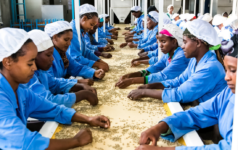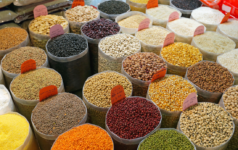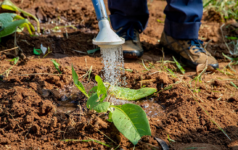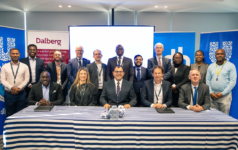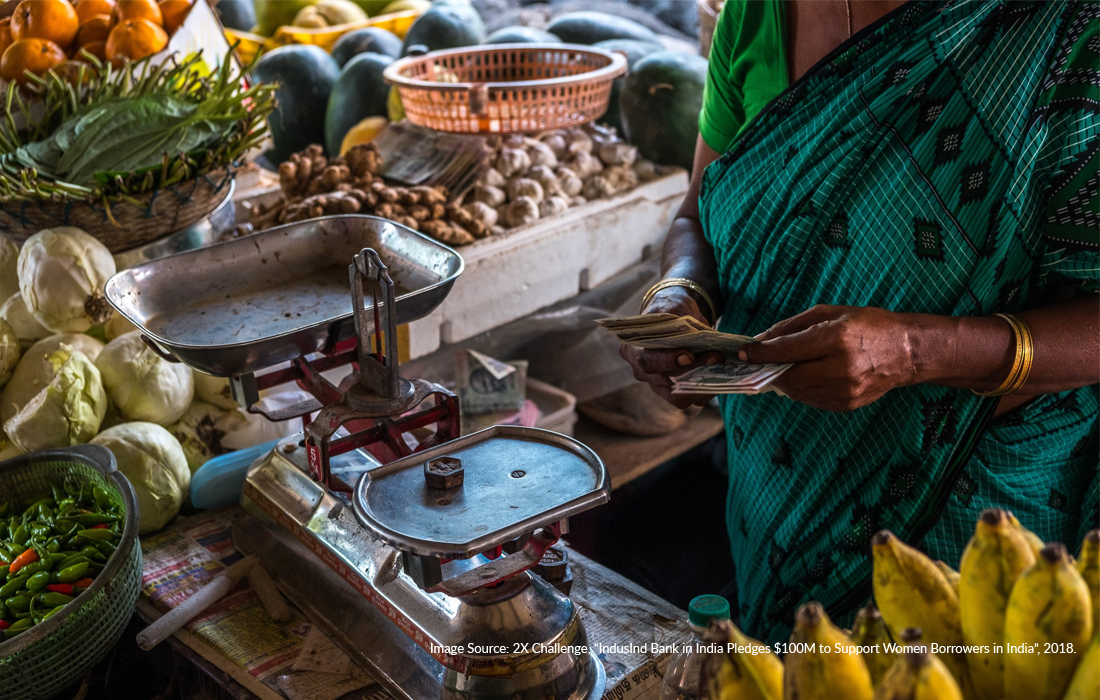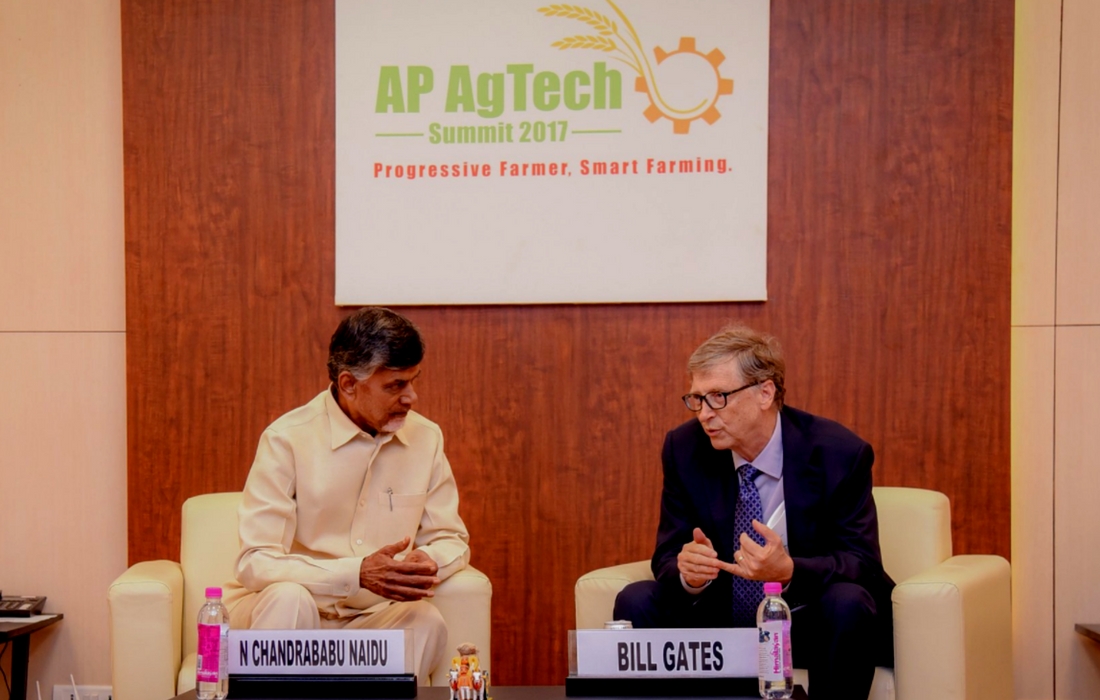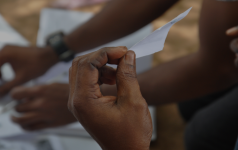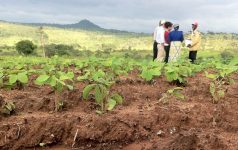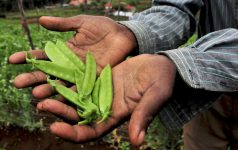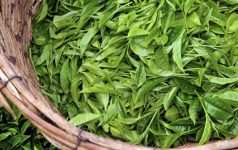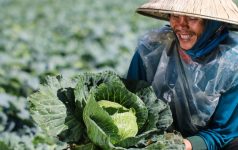Dalberg uses cookies and related technologies to improve the way the site functions. A cookie is a text file that is stored on your device. We use these text files for functionality such as to analyze our traffic or to personalize content. You can easily control how we use cookies on your device by adjusting the settings below, and you may also change those settings at any time by visiting our privacy policy page.
SMALLHOLDER FARMING AND CLIMATE CHANGE
Efficiency gains alone, by reducing food loss, increasing productivity and optimizing markets, have the potential to feed many of the additional two billion people expected worldwide between now and 2050. One billion of those will be in Africa, and feeding them properly will contribute significantly to poverty reduction and food security. The food price crisis of 2007-08 powerfully illustrated the vulnerability of the global food and agricultural systems. It raised major concerns about the future stability of food supply, quality and safety, and price volatility. It highlighted how smallholder producers are key to both their own and regional food security.
Yet these smallholders are still incredibly vulnerable. They face a myriad of challenges, notably environmental risks, financial insecurity and market volatility. These immediate pressures often eclipse long term climate change risks. Climate change increases the likelihood of extreme weather events, such as floods, drought, high winds and storms, and outbreaks of plant and animal pests and diseases. Such events have devastating impacts on yields; they can even cause outright crop failure. There is an immediate impact on individual farmers’ income and food security, as well as consequences for agribusiness and markets that were anticipating the produce.
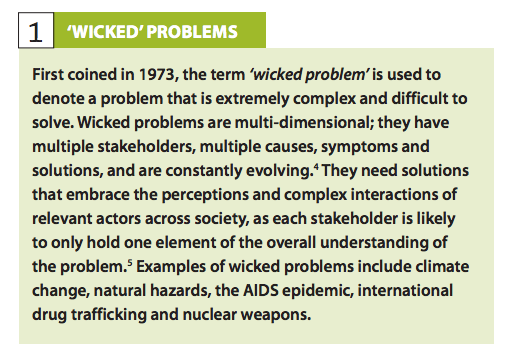
A poor harvest is an issue too for lenders, governments and other intermediaries that provide support and services. More broadly, a single season of crop failure can even ruin the farmer and disrupt market ecosystems. Over time, the impact of climate change will manifest not just as weather shocks. There may be warmer temperatures, wetter or dryer conditions. Other non-traditional weather patterns will change the timing and length of growing seasons, change which crops are suitable in particular local areas, and shift disease and pest patterns. In the longer term, climate change can also alter the nutritional value of crop plants themselves. Smallholders’ lack of resilience to climatic and other risks jeopardizes recent efforts to improve agricultural production and food security.
The important link between climate change and smallholder agriculture has already gained recognition. The concept of ‘climate-smart agriculture’ (CSA), first coined by the FAO in 2010, embraces the need for increasing productivity, while accommodating adaptation, resilience and emissions reduction. More recently, Sustainable Development Goal (SDG) 18 declared the need to—Take urgent action to combat climate change and its impacts. Climate change is embedded across a number of other SDGs.
Private sector actors are also getting involved in addressing agricultural climate vulnerabilities, primarily through risk management associated with their own value chains. Yet the broader interplay of factors needed to drive resilience at scale remains under-addressed. Climate change itself is a hugely ‘wicked’ problem—extremely complex, multi-dimensional and highly changeable.
THE ROLE OF MULTI-STAKEHOLDER INITIATIVES (MSIS)
Addressing ‘wicked’ problems like climate change require actions by multiple stakeholders and some form of collaboration, since more than one group faces risks and benefits. The ability to deliver and improve impact does not sit with any one actor and understanding the core issues needs the perspectives of multiple actors.
While there are many types of collaborative action, this study primarily concerns the potential role of the multi-stakeholder initiative (MSI) which is particularly suited to addressing complex socio-economic and environmental challenges and other wicked problems. Over the past decade multi-stakeholder initiatives (MSIs) have proliferated. However, there is still limited agreement on how to define the elements of these instruments. Guidance by the World Bank, the Global Development Incubator and many other organizations and experts provides useful frameworks for grouping the types of aims and governance structures MSIs take on, and principles for effective implementation. MSIs can be difficult, hard work and messy and those embarking on MSIs are strongly encouraged to refer to these sources. Less clear among the existing guidance is whether an MSI is the best approach to tackle the resilience issues facing smallholder farmers in Africa as they adapt to climate change.
ABOUT THIS STUDY
This study asks: ‘What is the role of MSIs today, in building stronger smallholder farmer resilience to climate change impacts in Africa?’ It forms part of a broader study, commissioned by the MasterCard Foundation, looking at this question and more generally at the use of MSIs as a tool.
A sister report examines the conditions for launching an MSI and different functional types. We used an evidence-based approach to identify the key areas where pushing forward through collective action, and multi-stakeholder initiatives in particular, will be critical to build smallholder resilience to climate change.
Although climate change risks are the key priority in this study, it is impossible to look at the question of smallholder climate resilience in isolation. As such, we assessed four broad areas:
- Agricultural planning. Climate, land and environmental modelling and forecasting to support research and development of new climate resilient inputs, alongside planning for changing land use and crop suitability.
- Crop management and soil health. Adoption of climate and environment-smart inputs and practices for the near and longer term.
- Financial and market chain resilience. Access to financial services, financial capacity building and broader restructuring of market relationships.
- Next generation in farming. Planning for, supporting and incentivizing youth to play an active role in agriculture. Note, in this case we did not look at gender separately.

